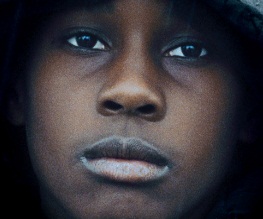Ballast

Ballast opens on the property of two brothers, one of whom (Darius) has committed suicide. His brother Lawrence is so filled with grief he immediately attempts to follow his brother into oblivion, but Darius has an estranged partner and son close by;the stricken Lawrence must find a way to cope – not only with his own grief, but that of his extended family.
It may concern great sadness but Ballast is oddly comforting; unspooling the frozen time that surrounds tragedy and wrapping it around you like a blanket. In exploring the differing experiences of being young and of being a fully-grown adult, the film is fluid, poignant and vital. Most of the film plays out from the point of view of 12-year old James (son of the recently deceased), who exists in a slowed-down version of adult time; his isolation shown in the joy he takes in hitting an old shoe across the attic with a baseball bat, by walking slowly across a field to the place where he hides his cigarettes, or by being left alone to school himself with an undecipherable book of mathematic equations. We just don’t know if the characters are living through days or weeks. There’s no way of telling. Time sticks itself to tragedy and seems to smother it. Yet the film recognises that a familiar cereal brand in a strange house can be comforting. It’s full of such desperation-tinged Americana, calming to the viewer as it is to the characters.
The cinematography is quite breathtaking; a bright blue light bathes everything on film, sculpting the character’s faces and winter-jacket wrapped silhouettes. The deceased Dwayne’s empty cabin is bathed in the same blue paint as the bluish outside world. This blue reflects in the rainy field furrows and yawning grey asphalt highways of the Mississippi delta. It settles in a halo atop the white fur of a pet half-wolf, half-husky, who drifts along with the characters, like a guardian angel. This embossing of blue light is maybe the strongest artifact in the movie; it’s almost the only clue that we’re watching fiction – that somebody has set up stage and then left for the audience seats.
Ballast is so tender that it’s beyond being analytical. It doesn’t dwell on clichés of violence regarding the rural poor – what it does instead is explore the creative and destructive nature of making do when there is no other option.

Recent Comments